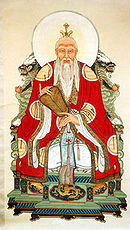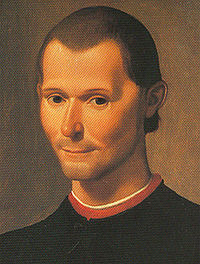Historical Roots
 |
 |
 |
 |
The concept of leader traits and attributes is an old one, predating the scientific study of leadership and reaching back into antiquity, across several civilizations. For example, in Chinese literature from the 6th century B.C., Lao-tzu described the qualities of effective leaders. The wise leader, according to Lao-tzu, was to be selfless, hardworking, honest, able to time the appropriateness of actions, fair in handing conflict, and able to "empower" others (Zaccarro et al., 2004, p.101).
Early and medieval mythology (for example, Homer's Iliad and Odyssey; Alfred, Lord Tennyson's Idylls of the King) focused on the attributions of heroes, whereas biblical writing emphasized wisdom and service to others as leadership qualities (Zaccarro et al., 2004, p.101).
Plato's Republic emphasized that in the ideal nation-sate, effective leaders used reasoning capacities and wisdom to lead others. He offered a lifelong "assessment plan" to help select such leaders (Zaccarro et al., 2004, p.101).
His student Aristotle argued in Politics that leaders were to help others seek virtue; they would do so by themselves being virtuous. He offered a plan for educating future governors (Zaccarro et al., 2004, p.101).
Niccolo Machiavelli, in The Prince, defined power and the ability of leaders to understand social situations and to manipulate them in practice of leadership as key leader attributes. Contrary to Aristotle, Machiavelli suggested slyness as a leader attribute, prescribing that leaders use less than virtuous means of gaining power and social legitimacy if more virtuous means were inadequate (Zaccarro et al., 2004, p.101).
Notions about leader qualities could be found in early Egyptian, Babylonian, Asian, and Icelandic sagas. Wondering about and identifying the qualities of the effective leader, the great hero, or the wise monarch, then preoccupied the earliest thinkers and storytellers (Zaccarro et al., 2004, p.101).
These early writings from antiquity to the first part of the 20th century attest to the enduring and compelling notions that leaders have particular qualities distinguishing them from non-leaders, and that these qualities can be identified and assessed.(Zaccarro et al., 2004, p.101).
Sirje Virkus, Tallinn University, 2009